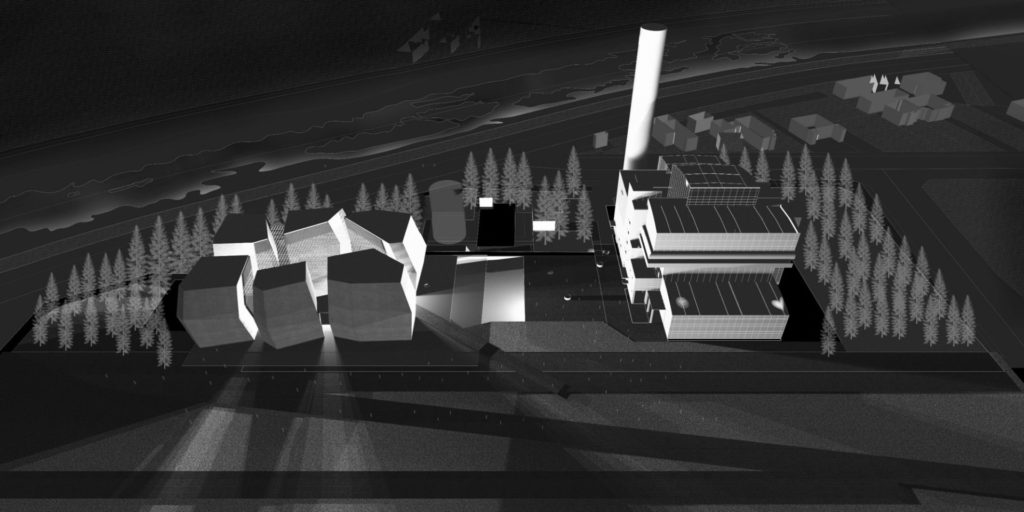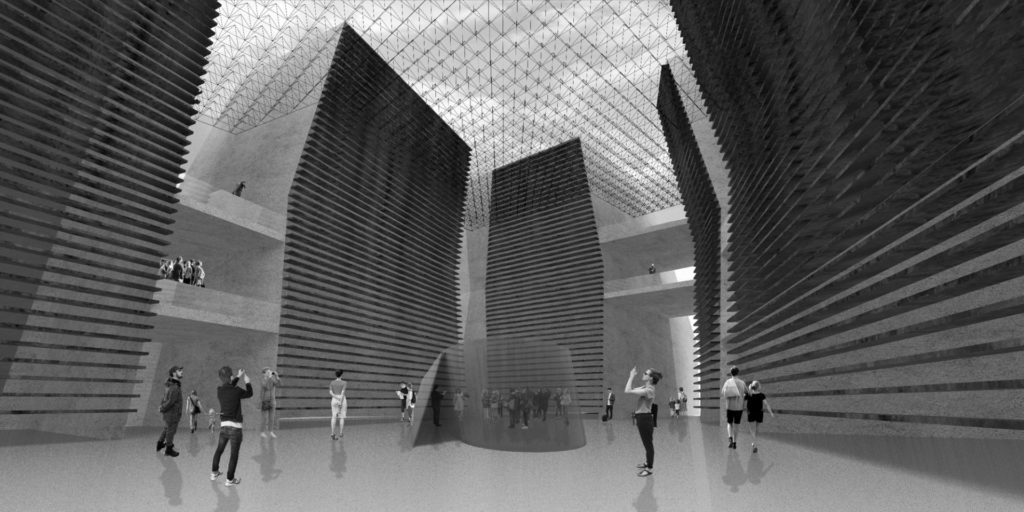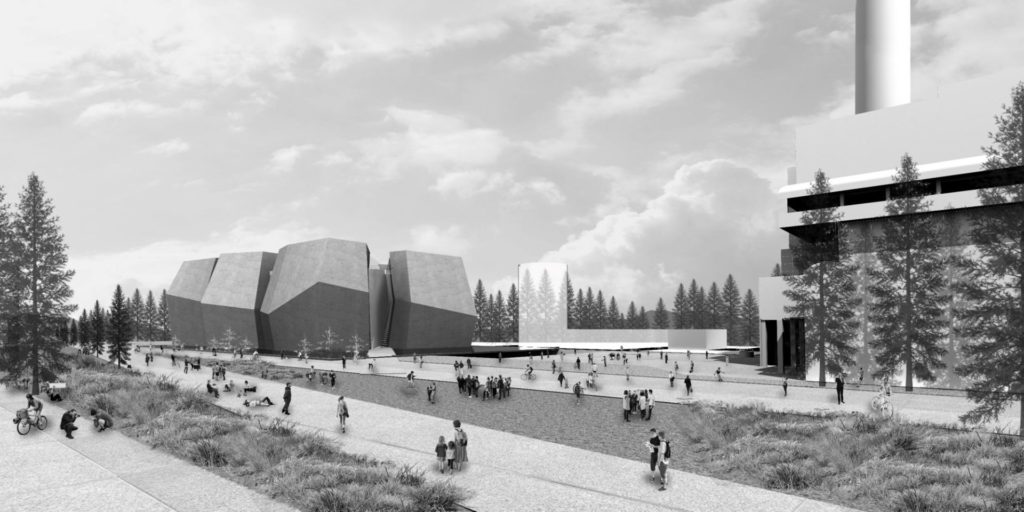Gwangju faces a new challenge: To position itself as a cultural city and an intellectual symbol in an urban context that aspires to development, but at the same time, must tie up past and future, by refreshing and connecting. The library is a cultural landmark, a milestone within the context of the urban landscape, that provides order and produces a starting point and a feedback loop for an sprawling effect. Conclusively, it is a generator of change and opportunity in its social role.
We see the library’s social role as a foundational organ of education, a place of information, a generator of knowledge, culture, a content spread out, a place for convergence and entrepreneurship, a space for connection, that releases and absorbs. About this definition we must think of an analogy with the heart, an essential organ in the human body. If we establish a relationship between organ and body, we could depict a relation where the library is to education and knowledge, as the heart is to the body. Both have vital motor functions within more complex systems.
- Architectural


